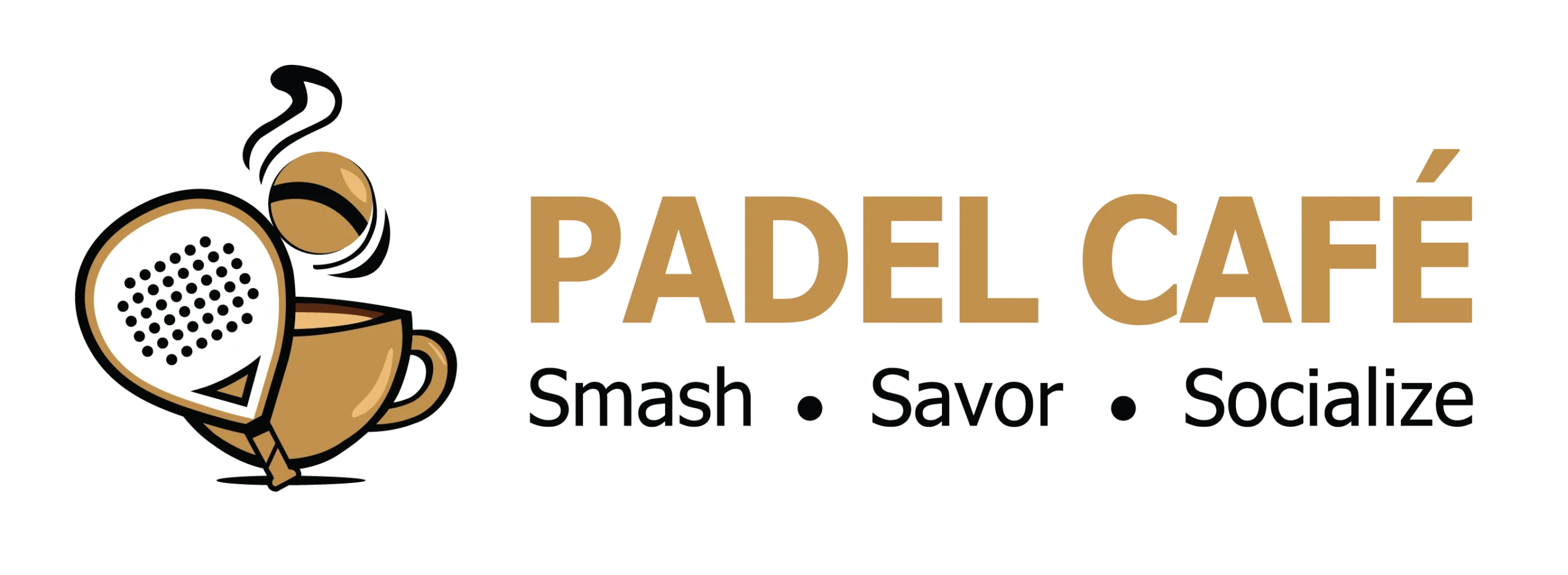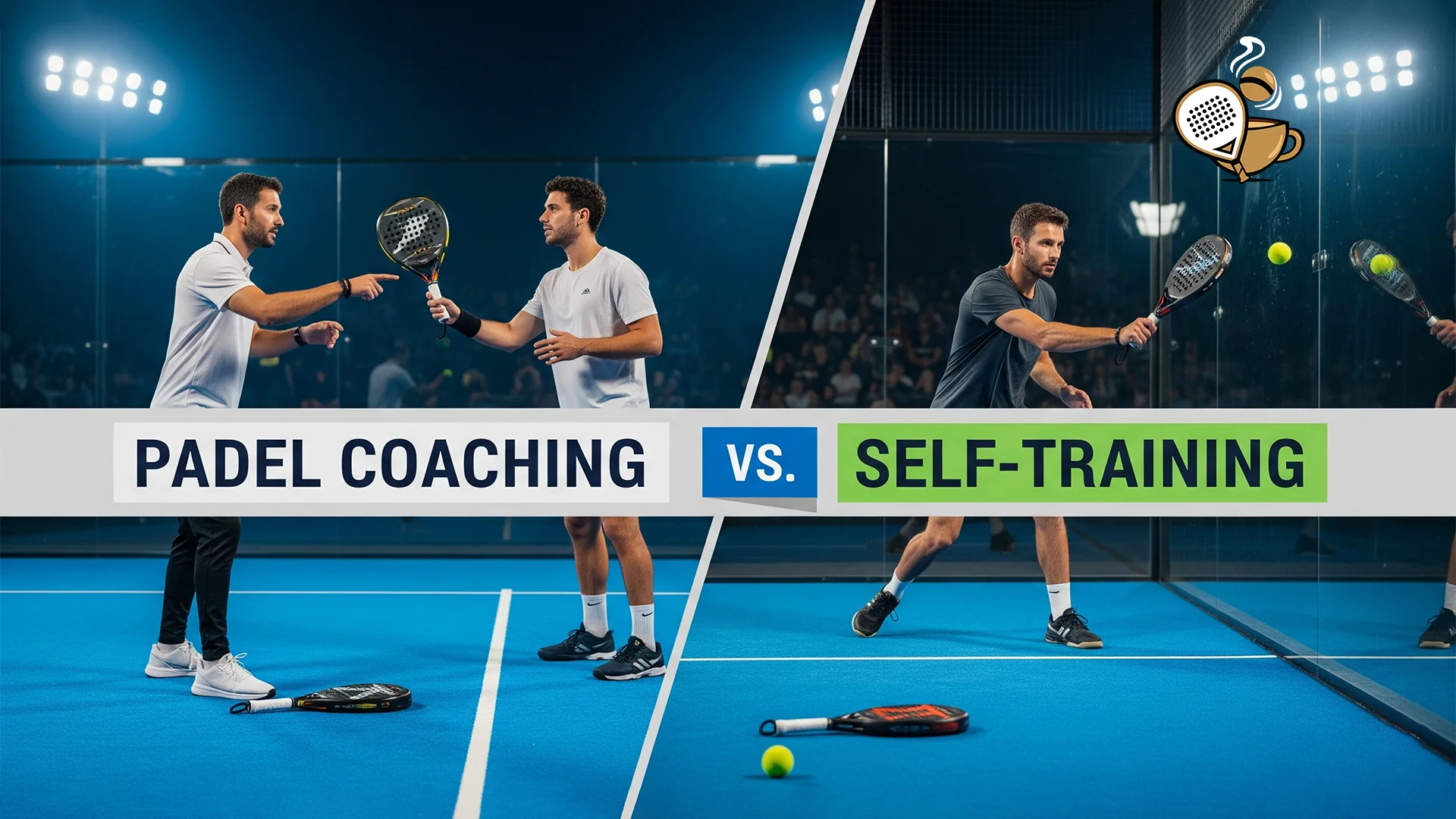Padel: a game loved for its mix of strategy, speed, and fun, has emerged as one of the fastest-growing sports in the world. But even if it is a fun game, improving the padel-playing skills is necessary to enjoy the thrill of the game fully.
This is where the padel training comes in. This training generally falls into two types: padel coaching and self-training. Both approaches have unique advantages. But selecting between the two isn’t just about preference. It’s about what actually makes a difference in skill, speed of learning, and enjoyment.
Whether you’re a beginner looking to master the basics or an intermediate player aiming to compete, understanding the pros and cons of each method is key. In this guide, we’ll explore which of the two practice approaches can help you take your game to the next level.
Padel Coaching
Padel coaching is a form of training session where you learn to play and improve your skill level under the guidance of a certified coach. Their instructions on technique, tactics, movement, fitness, and mindset develop your stamina and enhance the body’s agility. These can be in the form of:
- Private one-on-one lessons
- Group lessons
- Workshops
- Video feedback
- Match analysis
| Advantages | Disadvantages |
| Corrects mistakes quickly, accelerating improvement. | Can be expensive over time. |
| Personalized advice for your playing style. | Scheduling lessons may be inconvenient. |
| Teaches strategy, positioning, and teamwork. | Risk of over-relying on the coach. |
| Reduces injury risk with proper techniques. | Not every coach fits your learning style. |
| Provides structure, motivation, and accountability. | Sessions may feel less flexible than casual play. |
Self-Training
A common approach, self-training, is mostly what every padel player starts with. This involves:
- Individual casual playing
- Drills with friends or alone
- Watching videos and then practicing
- Reading articles on “tips to improve padel”
- Trial and error method
There’s no formal guide or coach who tells you what’s wrong or what’s good. It’s entirely upon you to discover — through consistent practice.
| Advantages | Disadvantages |
| Full flexibility—train anytime, anywhere. | Mistakes may stick without correction. |
| Lower cost compared to coaching. | It is harder to master advanced tactics and positioning. |
| Encourages creativity and self-discovery. | Greater risk of injuries from poor form. |
| Fun and motivating when playing with friends. | Progress may plateau without feedback. |
| Self-analysis builds awareness of strengths and weaknesses. | Sessions can lack focus without structure. |
Padel Coaching vs Self-Training: What’s Best When
Choosing between the two approaches depends on where you stand in your padel journey and what goal you desire to achieve. So, now, let’s dig into a deeper comparison of the two approaches so you can decide which strategic approach would do you better.
When Coaching Favors You
1. Starting as a Beginner
When playing Padel as a new player, proper guidance from a coach is what helps you achieve the fastest and reliable progress. From the very first day, you are taught the fundamentals: correct grip, footwork, and positioning. This guidance prevents you from lagging off and saves you months of trial and error.
2. Playing Competitively
For players who plan to pursue padel as a career and compete in national and international padel tournaments, coaching is becoming almost essential. At advanced levels, the game is less about basic skills and more about strategy, anticipation, and decision-making. Coaches help sharpen these areas and help you perform under pressure.
3. Breaking Through Plateaus
Even experienced players sometimes reach a point where progress slows down. This is where coaching serves as a solution. A coach identifies hidden flaws in technique or strategy and provides the adjustments you need to move forward again.
When Self-Training Works Best
1. Playing for Fun and Fitness
If you’re someone for whom padel is more like a leisure-time activity, self-training is the way to go. You can play with friends whenever it suits you, experiment with new shots, and keep things on a lighter note — thus, enjoying the thrill of the game to the maximum.
2. Managing Resources
Not every player has the time or resources for regular coaching. In such cases, self-training is the practical and smart option. Here, steady progress is possible by watching professional matches, recording your games, and following drills.
3. Mixing in Occasional Coaching
Many players use self-training as their main approach, but add in occasional coaching check-ins. This keeps costs lower while still ensuring that mistakes don’t go unnoticed and progress continues at a steady pace.
How to Make Self-Training More Effective
If, at the moment, you are unable to get proper coaching, there is no need to fret. There are simple ways through which you can make your self-training extra effective.
- Record your games: record your practice so when you see the video, you can observe the mistakes you don’t notice in the moment.
- Set clear goals: set definite goals, e.g., improve serve, footwork, and volleys to practice accordingly.
- Use good resources: make sure you pick high-quality training resources. For instance, instructional videos, books, tutorials, etc., should all be from trusted coaches with good reviews and proven results.
- Mix solo drills + match play: Practice technical drills (serves, volleys, movement), then test in matches.
- Get occasional outside feedback: Play with your peers or friends’ circle and get reviews from them. This will help you know about your improvement.
Summing Up
Whether a beginner or a seasoned player, practice is what makes your gameplay perfect. Likewise, in padel, what really improves your gameplay skills is the effort you put in to improve your skills and enhance your stamina.
Training with a coach or self-training are two ways that padel players opt in this regard. Both approaches have their perks. You can choose either one, or both – self-training at home and playing with a coach occasionally. Regardless of which route you take, the most important things are consistency and honesty with yourself.
Where can you go and enhance your padel skills? Head out to Padel Cafe now and join its Padel Coaching program. Not only can you self-train, but you can also get expert guidance from expert trainers, who help you all along to improve your skill level.
Frequently Asked Questions
Is coaching worth it if I already play regularly with friends?
Yes — even regular players benefit from coaching to identify blind spots, correct bad habits, and boost tactical understanding.
Can I reach a high level just by self-training?
It’s possible, but playing with a coach is recommended at some point. Without external feedback and structure, progress often slows, and important details are missed.
Does group coaching offer the same benefits as private coaching?
Group coaching is helpful for tactics, motivation, and social play but less effective for personalized technique correction.




0 Comments